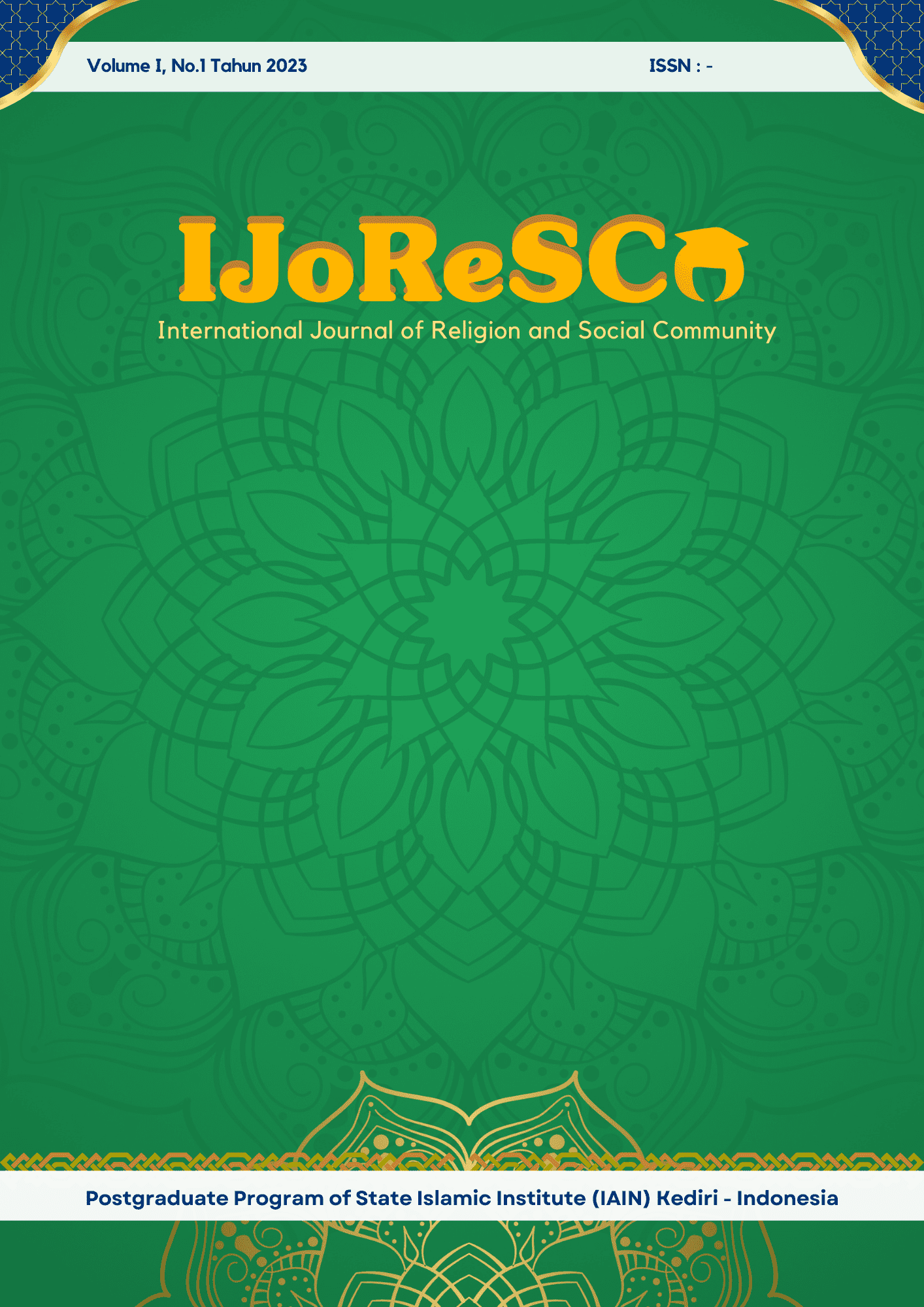Toxic Problems In Students At School (Case Study of PAI Implementation in Attitude Aspect at UNESA 2 Labschool Junior High School)
DOI:
https://doi.org/10.30762/ijoresco.v1i1.3413Keywords:
Toxic, PAI, Affective AspectsAbstract
This article discusses Toxic in Learners at School. The main finding of this article is that so far, Toxic has become a habit of Learners both at school, home and in the surrounding environment. The main factors for the spread of Toxic behavior in the student environment are through association, games, imitating and seeing the behavior of idol characters on video platform channels. While the solution offered by the Islamic Religious Education Teacher is to consciously accustom students to get used to self-control and stay away from Toxic behavior, read istiqfar every time they say Toxic sentences and get used to students to supervise and advise each other if there are other students who say Toxic sentences at school. Through this habituation, based on observations made in the field, the results of reducing Toxic behavior at school were obtained. Therefore, it is recommended that the role of the involvement of all school components to jointly control and suppress Toxic behavior that occurs at school.
References
Ahmad D. Marimba, Pengantar Filsafat Pendidikan Islam (Bandung: AlMa’arif, 1996)
Amalia Nurjannah, PENILAIAN SIKAP BERBASIS KURIKULUM 2013 DI SEKOLAH MENENGAH PERTAMA. JurnalTarbiyah Islamiyah Volume 4 Nomor 1 Edisi Juni 2019
Al-Imam Muhammad bin Ismail Al-Bukhari, Sahih al-Bukhari (Beirut : Dar Al-Kutub Al-Ilmiyah, 2017), III
Aini Indah Dwi Cahyani, Syahidah Rena, and Fajar Syarif, “Strategi Keluarga Muslim Dalam,” Jurnal Pendidikan Islam 19 (2021): 26.
Iredho Fani Reza, MA.Si, https://psikologi.radenfatah.ac.id/berita/detail/toxic-friendship-in-islamic-psychologyperspective#:~:text=Menurut%20Prof.%20Victoria%20Andrea%20Mu%C3%B1oz,adalah%20%E2%80%9CPersahabatan%20yang%20Beracun%E2%80%9maq3556D.
Mutiani Mutiani et al., “Kajian Empirik Pendidikan dalam Latar Peristiwa Masyarakat Tradisional, Modern, dan Era Globalisasi,” EDUKATIF : JURNAL ILMU PENDIDIKAN 4, no. 2 (February 23, 2022): 2275–82, https://doi.org/10.31004/edukatif.v4i2.2478.
Mokh. Iman Firmansyah “PENDIDIKAN AGAMA ISLAM : PENGERTIAN, TUJUAN, DASAR, DAN FUNGSI”, Jurnal Pendidikan Agama Islam -Ta’lim Vol. 17 No. 2 – 2019
PP No. 55 Tahun 2007 Tentang Pendidikan Agama dan Pendidikan Keagamaan”
PANDUAN PENILAIAN PENCAPAIAN KOMPETENSIPESERTA DIDIK SEKOLAH MENENGAH PERTAMA, Kementerian Pendidikan Dan Kebudayaan Direktorat Jenderal Pendidikan Dasar Direktorat Pembinaan Sekolah Menengah Pertama 2014
Sumarto Budaya, Pemahaman dan Penerapannya “Aspek Sistem Religi, Bahasa, Pengetahuan, Sosial, Keseninan dan Teknologi” Jurnal Literasiologi, VOLUME 1, NO. 2 Juli – Desember 2019
Riveni Wajdi, PERILAKU KOMUNIKASI TOXIC FRIENDSHIP DENGAN TEMAN SEBAYA: Studi pada MahaPeserta Didik Fisipol angkatan 2015-2016 Universitas Muhammadiyah Makassar (Sripsi Program Studi Ilmu Komunikasi Fakultas Ilmu Sosial Dan Ilmu Politik Universitas Muhammadiyah Makassar 2021)
Yager, When Friendship Hurts Mengatasi Teman Berbahaya & Mengembangkan Persahabatan yang Menguntungkan. diterjemahkan oleh Arfan Achyar. (Tangerang: AgroMedia Pustaka, 2006)













